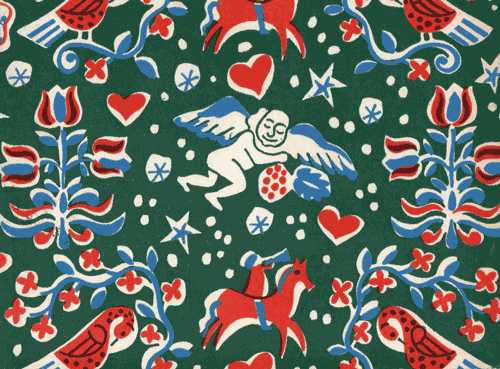Occasional Miscellany: The Peter Pauper Press & its Merrie Christmas Drink Book
During 1928 when he was twenty-two Peter Beilenson established the Peter Pauper Press in the cellar of his parents’ house in Larchmont, a wealthy suburb of New York City. He chose the name because he sold his books at “prices even a pauper could afford” notwithstanding their high production standards including handmade paper and color prints graphics and woodcuts.
The first publication of the press was an illustrated translation of Petrarch by Synge into Irish vernacular English. A bookseller in New York bought the entire print run of some two hundred copies and they attracted considerable attention. Despite the limited run, the American Institute of Graphic Arts named With Synge one of its “50 Books of the Year.”
In 1929, Beilenson started another imprint, At the Sign of the Blue-Behinded Ape, to publish “less respectable offerings” including for instance Cupid’s Horn-Book, Songs of Marriage and Cuckoldry Written by Various Hands & Embellished with Cuts by Richard Floethe. Floethe was an acclaimed illustrator and painter whose astonishing output continued unabated until his death in the 1980s.
The Peter Pauper Press commissioned a number of other notable twentieth century artists including Valenti Angelo, Fritz Eichenberg, Fritz Kredel, Raymond Lufkin and Lynd Ward.

Cover print from the Merrie Christmas Drink Book, 1955
Eventually Beilenson moved the press to Mt. Vernon, New York. By 1932 his wife Edna became a partner in his enterprises. He handled the creative side of the business; she managed it so well that in 1968 Who’s Who of American Women named her “Outstanding Business Woman of the Year.”
Edna Beilenson was a pioneer, the first woman named President of the American Institute of Graphic Arts and among the first women elected to the Grolier Club. She also was made a fellow of the Royal Society of Arts.
According to Janet Borgerson and Jonathan Schroeder at the University of Exeter, the Peter Pauper Press produced “culturally notable artifacts” they describe as “guidebooks to a mobile, articulate, cultured life.” They explain that the press “made belles-lettres authors, exotic ingredients, and foreign figures available to mainstream U.S. consumers” and “contributed small signals of success in the quest for adventurous dining, broader horizons, and cultural capital.” Many of these artifacts have become collectible.
The cookbook series began at midcentury and Edna Beilenson claimed its recipes included everything “from abalone to zabaglione.” One of the titles, Early American Cooking: Recipes From America’s Historic Sites is written by Evelyn Beilenson, daughter in law of Edna. It includes a number of recipes reprinted from historic cookbooks, many with a distinctive English cast.
In 1955 PPP published a handsome little clothbound book called The Merrie Christmas Drink Book priced at a single dollar. The press does not disclose its author, which is too bad. She deserves credit for a comprehensive and beautifully illustrated survey. In addition to the run of recognizably American cocktails, the Drink Book includes a chapter of “Party Punch Bowls” that dispenses, among lots of other good advice, two general guidelines for creating of your own:
“1. Never use Scotch, which is a bad mixer; and 2. If you use gin, use no other hard liquor in combination with it, and remember that gin mixes best with citrus fruits. Other liquors: brandy, rye, bourbon and rum, will mix with any fruit--and with each other--and with wine.”
Other advice is more mischievous, even theatrical, for example:
“Champagne or other sparkling wine in a punch prepared in the kitchen is a waste: soda water gives the same bubbles. But Champagne added in public is a festive gesture.” (emphasis of course in original)
Many of the punches are British in origin and one of them is from Antoine’s restaurant in New Orleans. The recipes for Artillery, Bombay, Brandy Fish House and Hot Rum punches originate in the Anglosphere pack a particular appeal.
The Beilenson family still owns the Peter Pauper Press: Some of their punch recipes appear in the practical.
